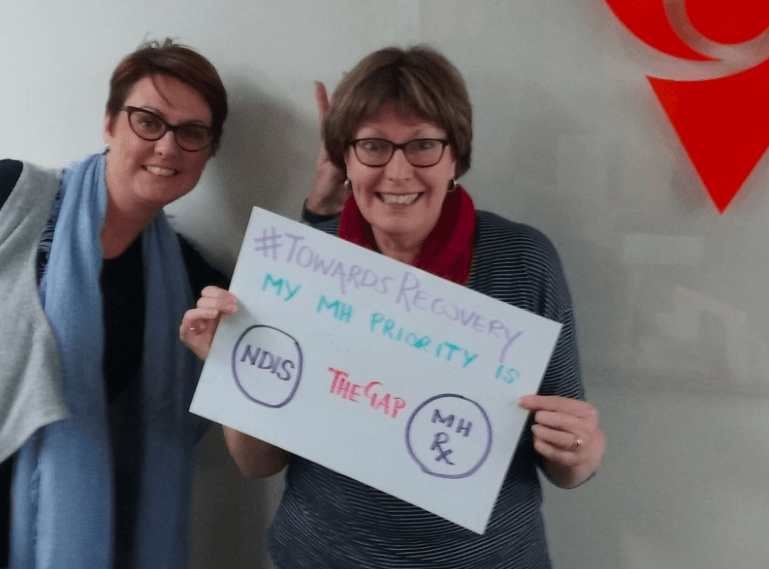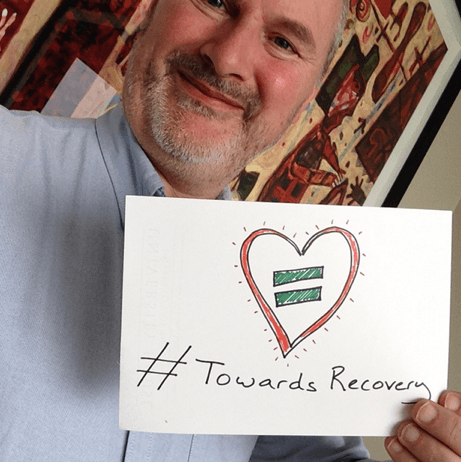Marie McInerney writes:
The peak body for community managed mental health services in Victoria, VICSERV, is holding a timely conference in Melbourne later this week, Towards Recovery.
 The article below previews some of the key issues nominated by conference presenters, participants and organisers.
The article below previews some of the key issues nominated by conference presenters, participants and organisers.
I will cover the event for the Croakey Conference News Service, and you will be able to follow the news on Twitter via @mariemcinerney and the hashtag #Towards Recovery.
As well, Aram Hosie, Public Affairs Manager for cohealth, Australia’s largest community health organisation, will tweet from the conference for @WePublicHealth.
VICSERV has also curated some useful public Twitter lists of people attending and speaking at the conference (see above), as well as others who may be of interest to conference followers. Check out the lists here.
[divide style=”dots” width=”medium”]
Kim Koop
VICSERV CEO

[divide style=”dots” width=”medium”]
Keynote speaker Dr Simon Duffy
Director of the Centre for Welfare Reform in the UK
@SimonJDuffy

[divide style=”dots” width=”medium”]
Chris Carter
CEO of the North Western Melbourne Primary Health Network
@CarterChrisJ

[divide style=”dots” width=”medium”]
Associate Professor Jane Burns
CEO, Young and Well Cooperative Research Centre
@janeburns

[divide style=”dots” width=”medium”]
Debra Parnell
VICSERV Policy and Communications Manager

[divide style=”dots” width=”medium”]
Dr Lisa Brophy
Senior Research Fellow, The Centre for Mental Health, Melbourne School of Population and Global Health, University of Melbourne, and Director of Research, Mind Australia
@LisaMBrophy

[divide style=”dots” width=”medium”]
Focus on innovation
The theme of the conference is Towards Recovery: Hope, Innovation, Co-design – and a number of the issues on its agenda were also explored in VICSERV’s recent edition of its newparadigm magazine.
The conference comes at a time of great change for the mental health sector, in Victoria and beyond.
Recent reforms include the establishment of Primary Health Networks and the considerable expansion in their scope in community mental health and suicide prevention in response to the Review of Mental Health Programmes and Services.
But Victoria also faces a unique major challenge for mental health under the National Disability Insurance Scheme, with all of its mental health community support funds committed to the NDIS.
That raises major issues around eligibility for the NDIS – about definitions of ‘permanent disability’ and how recovery can be understood – that will also mean challenges for other states and territories.
VICSERV has been studying the NDIS trial programs at Barwon to explore the gaps and problems, amid concern that people who are deemed ineligible for NDIS support won’t be able to go back to their current support services.
A number of conference sessions will look at these issues, including an interactive ‘Hypothetical’ using the Harvard Case Method to explore a real life scenario, which promises a surprise twist.
Following concerns expressed this week by former Australian of the Year Professor Patrick McGorry, there will be a timely panel discussion on the role of the Primary Health Networks within the context of national mental health reform, led by Chris Carter, CEO, North Western Melbourne PHN, Lyn Morgain, CEO of cohealth, and Jason Trethowan – CEO, Western Victoria PHN.
The conference’s keynote speakers include Dr Simon Duffy, Director of the Centre for Welfare Reform in the UK (see his ‘priority’ above), and Professor Mark Salzer from the Department of Rehabilitation Sciences at Temple University in the US.
Watch Duffy in the clip below on the meaning of citizenship, one of the themes of his keynote.
Salzer will speak on “A life in the community like everyone else: Evidence and innovation”, calling for innovation in self-determination, authentic peer support, technology and addressing environmental barriers to inclusion that see “the person”, not “the patient”.
The conference will focus on finding better ways to respect and strengthen the voices of consumers and peers in mental health, and will feature some innovative thinking and practice on how to build a peer workforce, including in acute settings.
Other sessions will look at varying cultural experiences and challenges in mental health, including programs working to provide good care and address stigma in Arabic and Chinese communities.
As part of a number of presentations on ways to address unmet needs for Aboriginal and Torres Strait Islander people experiencing mental health issues, conference participants will hear from the Wadamba Wilam program as an example of a collaborative approach that has been targeting homelessness and mental illness in a proactive and positive way.
The conference will look at particular issues for young people, carers, and the lack of access to services in non-metropolitan regions. In the wake of the recent landmark report from Victoria’s Royal Commission into Family Violence, one session will explore the intersection of mental illness with family violence, alcohol and other drugs and trauma.










